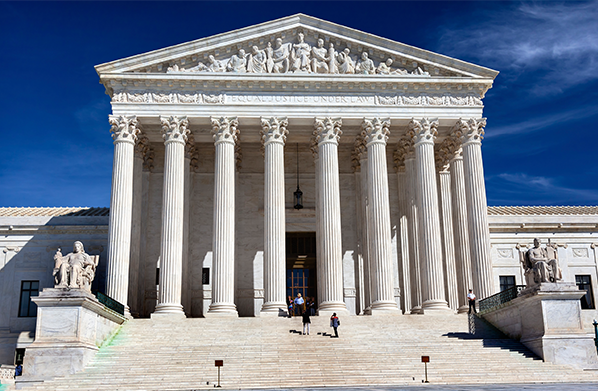During his 2005 Supreme Court confirmation hearing, John Roberts made a famous pledge about how he would approach his duties as a justice: “I will remember that it’s my job to call balls and strikes, and not to pitch or bat.” With a few notable exceptions — namely, his 2012 and 2015 rulings on the Affordable Care Act (a.k.a. “ObamaCare”) — Roberts has indeed served as a reliable umpire. If more judges did the same, the federal judiciary would play a smaller and more appropriate role in American life, and our democracy would be much healthier.
The problem, of course, is that many judges and would-be judges — especially the ones likely to be nominated should Hillary Clinton win the presidency — are not content to be umpires. They’re eager to pitch, bat, and steal bases. In other words, they’re eager to achieve policy outcomes via judicial fiat, regardless of whether the text and history of the Constitution and American law demand those outcomes.
With such a large number of judges effectively legislating from the bench, it’s no surprise that senators treat nomination battles like policy battles. It’s also no surprise that both Republicans and Democrats view the next Supreme Court appointment as crucially important to their broader agenda.
At root, the debate over judicial philosophy is a debate over the meaning of self-government. The late Justice Antonin Scalia understood that, and he made a point of emphasizing it in his opinions. Last year, for example, when he dissented from the ruling that legalized gay marriage nationwide, Scalia stressed that his primary concern was “this Court’s threat to American democracy.” As he explained:
The substance of today’s decree is not of immense personal importance to me. The law can recognize as marriage whatever sexual attachments and living arrangements it wishes, and can accord them favorable civil consequences, from tax treatment to rights of inheritance. Those civil consequences — and the public approval that conferring the name of marriage evidences — can perhaps have adverse social effects, but no more adverse than the effects of many other controversial laws. So it is not of special importance to me what the law says about marriage. It is of overwhelming importance, however, who it is that rules me. Today’s decree says that my Ruler, and the Ruler of 320 million Americans coast-to-coast, is a majority of the nine lawyers on the Supreme Court. The opinion in these cases is the furthest extension in fact — and the furthest extension one can even imagine — of the Court’s claimed power to create “liberties” that the Constitution and its Amendments neglect to mention. This practice of constitutional revision by an unelected committee of nine, always accompanied (as it is today) by extravagant praise of liberty, robs the People of the most important liberty they asserted in the Declaration of Independence and won in the Revolution of 1776: the freedom to govern themselves.
Throughout his nearly 30 years on the Court, Scalia sought to defend that freedom. He did so by focusing relentlessly on the text and history of constitutional provisions and laws. Following his death in February, former Tenth Circuit appellate judge Michael McConnell noted that “text and history are about more than fastidious jurisprudence. They are about democracy: allowing Americans to decide contentious questions for themselves, where the Constitution is, honestly read, silent.”
That’s why the fight over Justice Scalia’s replacement will be so consequential: His successor will either help accelerate or help resist the erosion of democracy by a closely divided Court. Needless to say, no single justice should ever be so important to the future of American liberty. Yet such is the reality of our government in 2016.


